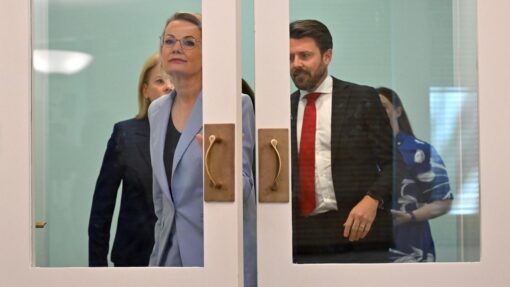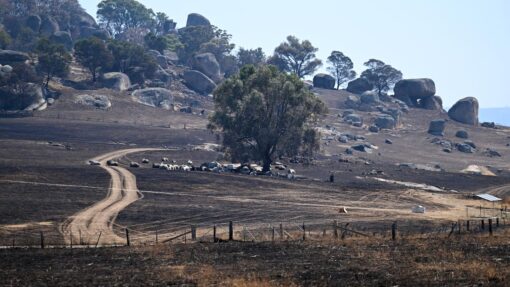Greens ‘failing the public’ on housing fund: Albanese
Andrew Brown |
Prime Minister Anthony Albanese has accused the Greens of failing the public on housing following stalled negotiations on a multi-billion dollar housing fund.
The comment came as a new report by the Business Council of Australia recommended national housing targets be tied to population.
The $10 billion Housing Australia Future Fund remains stuck in parliament, with neither the coalition or the Greens backing the proposal.
The fund would see 30,000 new social and affordable homes built in the next five years, but the Greens have urged more immediate action to solve the housing crisis, including a rent freeze.
While the Greens have hit out at the fund as gambling money on the stock market to pay for housing, the prime minister said the party was grandstanding.
“The Greens political party would rather posture than vote for what is before the parliament. They need to explain that contradiction,” Mr Albanese told reporters in Adelaide on Monday.
“I’ve seen some of the absurd comments speaking about gambling. If that is the case …they must be horrified at the Clean Energy Finance Corporation and what it does, they must be terrified about superannuation.”
The Greens have urged that $1.6b in funding be doubled for state and territory governments, with the money to be used as part of rent freeze measures.
Mr Albanese said talks were ongoing with jurisdictions about funding arrangements.
“This is the Greens failing the public. This is the gap that is there with the Greens political party between their rhetoric and their delivery.”
Greens housing spokesman Max Chandler-Mather said the party was looking to negotiate with the government on seeking to make the housing bill more presentable.
He said the bill in its current form did not guarantee a cent in funding for public and affordable housing and “does nothing for renters in the middle of the worst housing crisis we’ve seen in generations”.
The solution lay in freezing rent increases while directly investing in building public and affordable housing.
The opposition has triggered a debate over the adequacy of housing to support the estimated 1.5 million migrants set to come to the country during the next five years.
Opposition Leader Peter Dutton said there was no new housing stock that would support the intake.
“When you find it hard at the moment to get a rental or you find it hard to buy a house, that problem is just going to be compounded many times because Labor is not producing any more stock into the system,” he told reporters in Brisbane.
“The fact is that they are making it harder for Australians who want to rent a home, who want to buy a home.”
The Business Council report said a lack of supply in the housing market and not migration had fuelled issues in the sector.
It said setting targets should lead to actions by state or territory governments to meet demand.
Under the proposal, jurisdictions that meet housing targets would get financial incentives, while those that don’t would be penalised.
Federal housing Minister Julie Collins said the incentives for states and territories were already part of the national housing accords.
“Only by working together will we be able to turn this around. No tier of government can solve this alone. We all need to be working together,” she told reporters in Brisbane.
AAP


